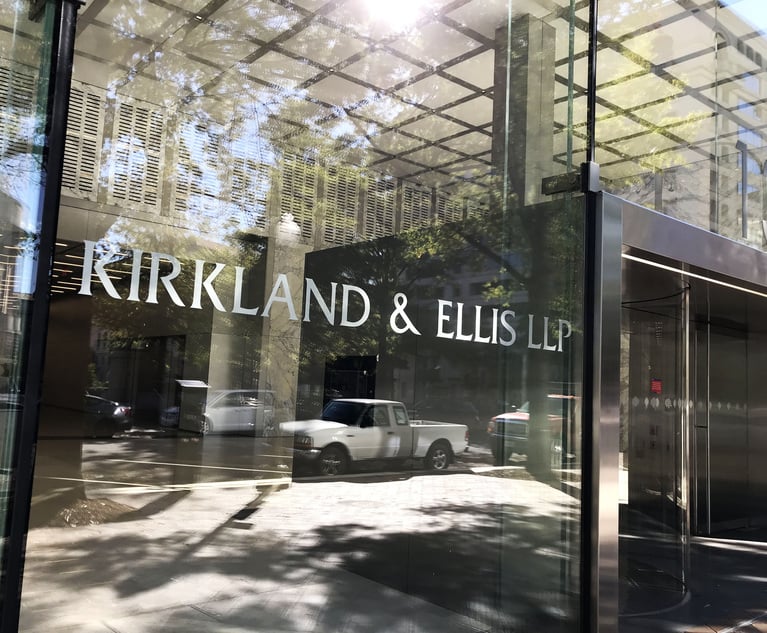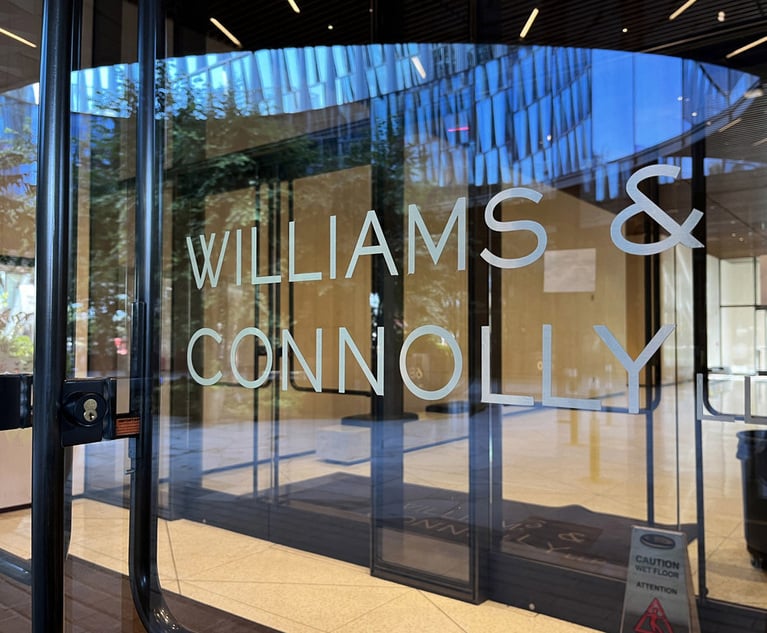Want to continue reading?
Become an ALM Digital Reader for Free!
Benefits of a Digital Membership
- Free access to 1 article* every 30 days
- Access to the entire ALM network of websites
- Unlimited access to the ALM suite of newsletters
- Build custom alerts on any search topic of your choosing
- Search by a wide range of topics
Already have an account? Sign In Now
*May exclude premium content










